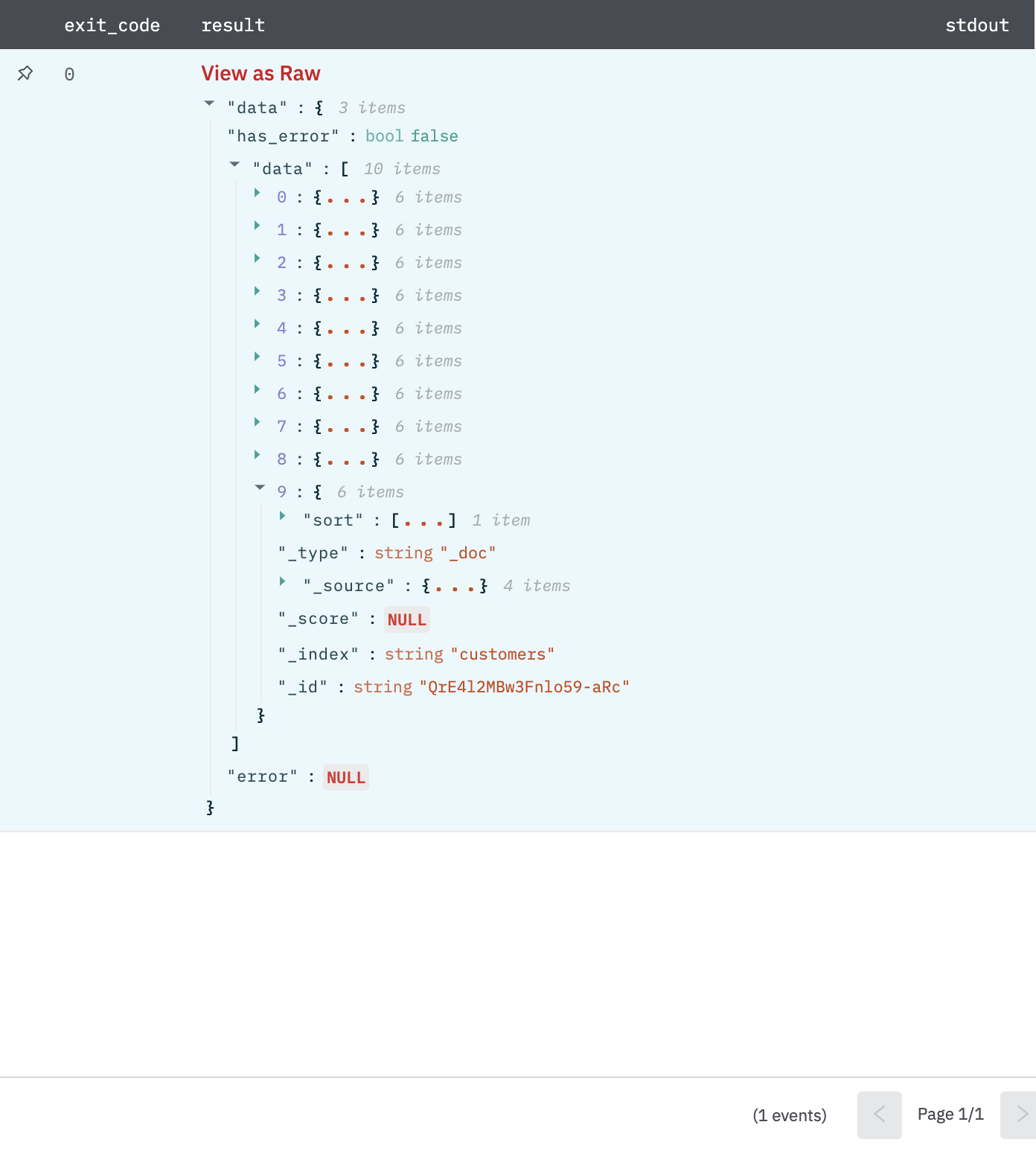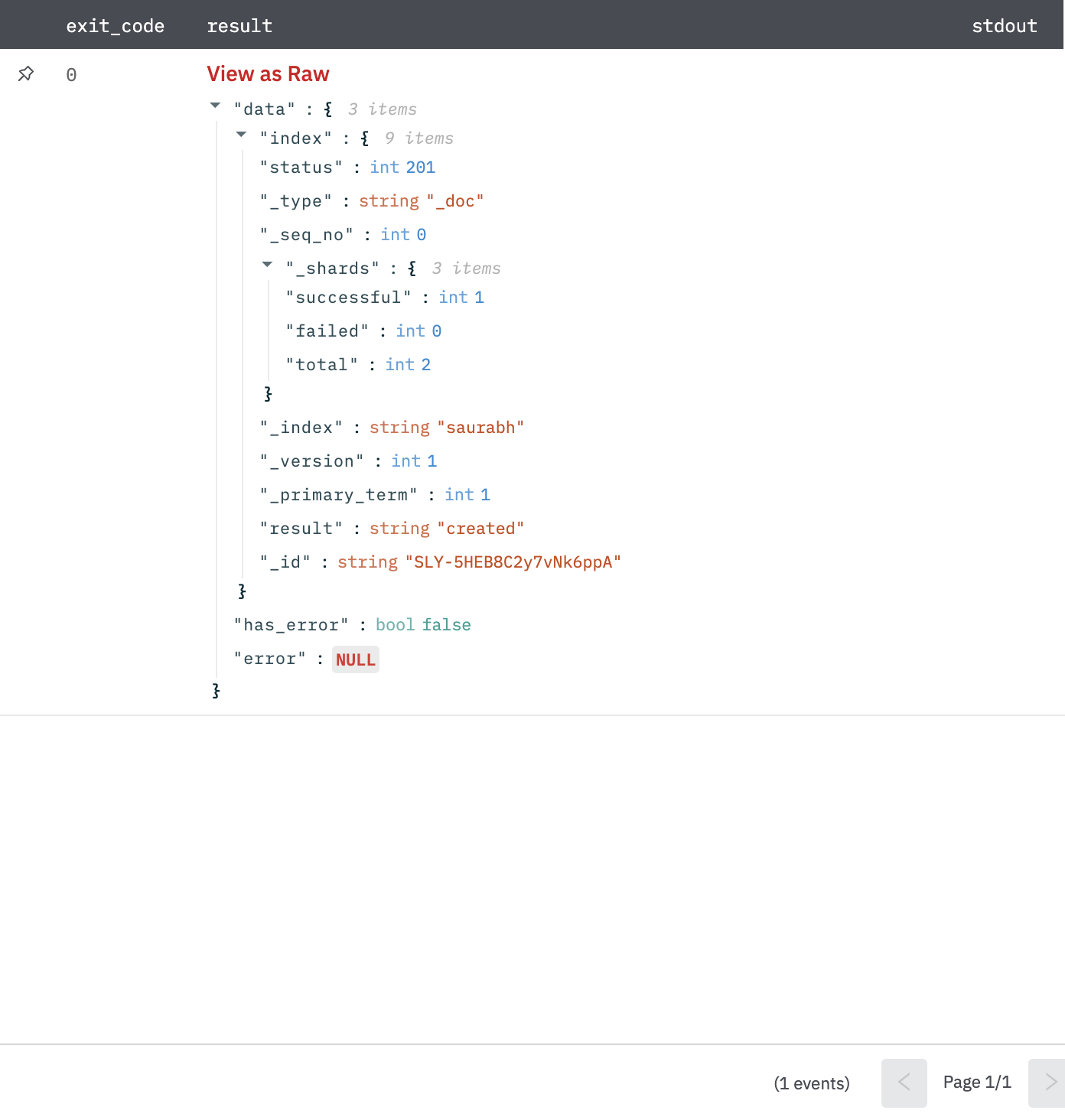Elasticsearch
Version: 2.0.0
Elasticsearch is a search engine based on Lucene. It provides a distributed, multitenant-capable full-text search engine with an HTTP web interface and schema-free JSON documents.
Connect Elasticsearch with LogicHub
- Navigate to Automations > Integrations.
- Search for Elasticsearch.
- Click Details, then the + icon. Enter the required information in the following fields.
- Label: Enter a connection name.
- Reference Values: Define variables here to templatize integration connections and actions. For example, you can use https://www.{{hostname}}.com where, hostname is a variable defined in this input. For more information on how to add data, see 'Add Data' Input Type for Integrations.
- Verify SSL: Select option to verify connecting server's SSL certificate (Default is Verify SSL Certificate).
- Remote Agent: Run this integration using the LogicHub Remote Agent.
- Server URL: Enter server URL for Elasticsearch.
- Username: Enter Username for Elasticsearch.
- Password: Enter Password for Elasticsearch.
- After you've entered all the details, click Connect.
Actions for Elasticsearch
Run Query v2
Runs the query on Elasticsearch service.
Input Field
Choose a connection that you have previously created and then fill in the necessary information in the following input fields to complete the connection.
| Input Name | Description | Required |
|---|---|---|
| Index Name | Select column that contains index name to run the ES query on. | Required |
| Query Type | Select Query Type Basic/Advanced. | Required |
| Jinja Template for Query | Template of the elastic search query. Example: Basic Query title:"{{title_column}}" AND text:{{text_column}}Advanced Query {"query": { "multi_match" : { "query": "{{search_text}}", "fields": [ "subject", "message" ] }}} | Required |
| Query Timeout | Query timeout in seconds (default is 30 seconds). | Optional |
| Stored Fields | Select column that contains value for Stored Fields. | Optional |
| Records Size | Enter Size for Elastic search records. (default is 10). | Optional |
Output
A JSON object containing multiple rows of correlated result:
- has_error: True/False
- error: message/null
- other keys of Elasticsearch Query Results

Insert Records
Inserts records in an Elasticsearch index.
Input Field
Choose a connection that you have previously created and then fill in the necessary information in the following input fields to complete the connection.
| Input Name | Description | Required |
|---|---|---|
| Select Index | Select column that contains the index name where the records are to be inserted. | Required |
| Jinja Template for Document | Enter jinja-templated document JSON. Example: { "fname": "{{firstname_col}}", "lname": "{{lastname_col}}" } | Required |
| Batch Size | Enter a number of rows to process in one batch of the bulk insert. (Default is 100). | Optional |
Output
A JSON object containing multiple rows of correlated result:
- has_error: True/False
- error: message/null
- other keys of insert response per document returned by Elasticsearch.

Release Notes
v2.0.0- Updated architecture to support IO via filesystem
Updated over 2 years ago